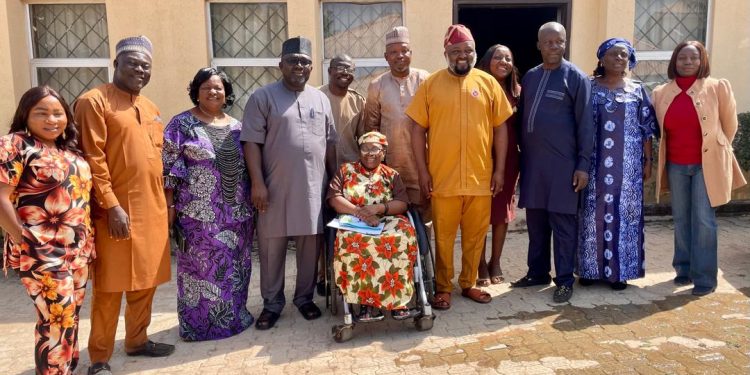The Plateau State Independent Electoral Commission (PLASIEC) and the Equal Basis Development Initiative (EBDI) have signed a Memorandum of Understanding (MoU) to enhance disability inclusion in Plateau State’s electoral processes. The signing, which took place on January 7, 2025, marks a significant step toward fostering inclusive governance and ensuring the active participation of persons with disabilities (PWDs) in elections.

EBDI, a non-governmental organization advocating for the rights of PWDs, has been active in Plateau State for over two years, promoting democracy and good governance. Speaking at the event, Mrs. Patricia, representing EBDI, expressed gratitude to PLASIEC for the partnership. She highlighted EBDI’s active involvement in the electoral process, including serving as election observers during the October 2024 local government elections. Mrs. Patricia emphasized the importance of the MoU, which she believes will deepen engagement and create an electoral body that is more inclusive of PWDs.
The MoU aims to establish a collaborative framework between PLASIEC and EBDI to ensure the accessibility of electoral materials and infrastructure for PWDs and to promote disability-inclusive governance.

Hon. Plangji Daniel Cishak, Chairman of PLASIEC, lauded EBDI’s contributions during past elections and reaffirmed the commission’s commitment to the partnership. He acknowledged the need for inclusivity and pledged to integrate PWDs into all aspects of the electoral process.
Cishak also revealed PLASIEC’s plans to conduct a post-election review, improve technological tools, and develop a three-year strategic plan to enhance the electoral process. He praised EBDI’s efforts and expressed hope that their upcoming U.S.-based training would provide valuable insights for advancing disability inclusion in Plateau State.
Both parties emphasized the MoU’s alignment with the Discrimination Against Persons with Disabilities (Prohibition) Act 2018, reflecting a shared vision of a more inclusive democratic process. The partnership is expected to enhance electoral policies, improve accessibility at polling stations, and ensure greater participation of PWDs in governance.
















